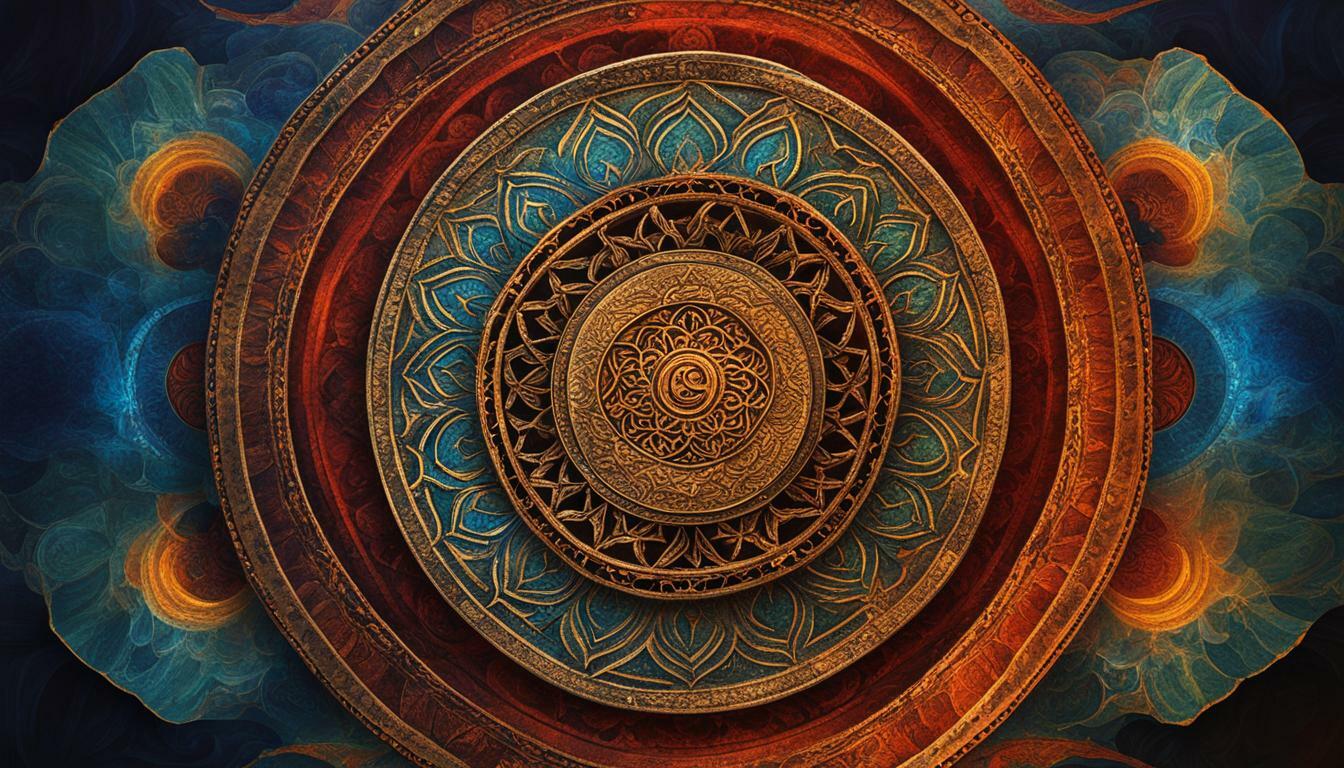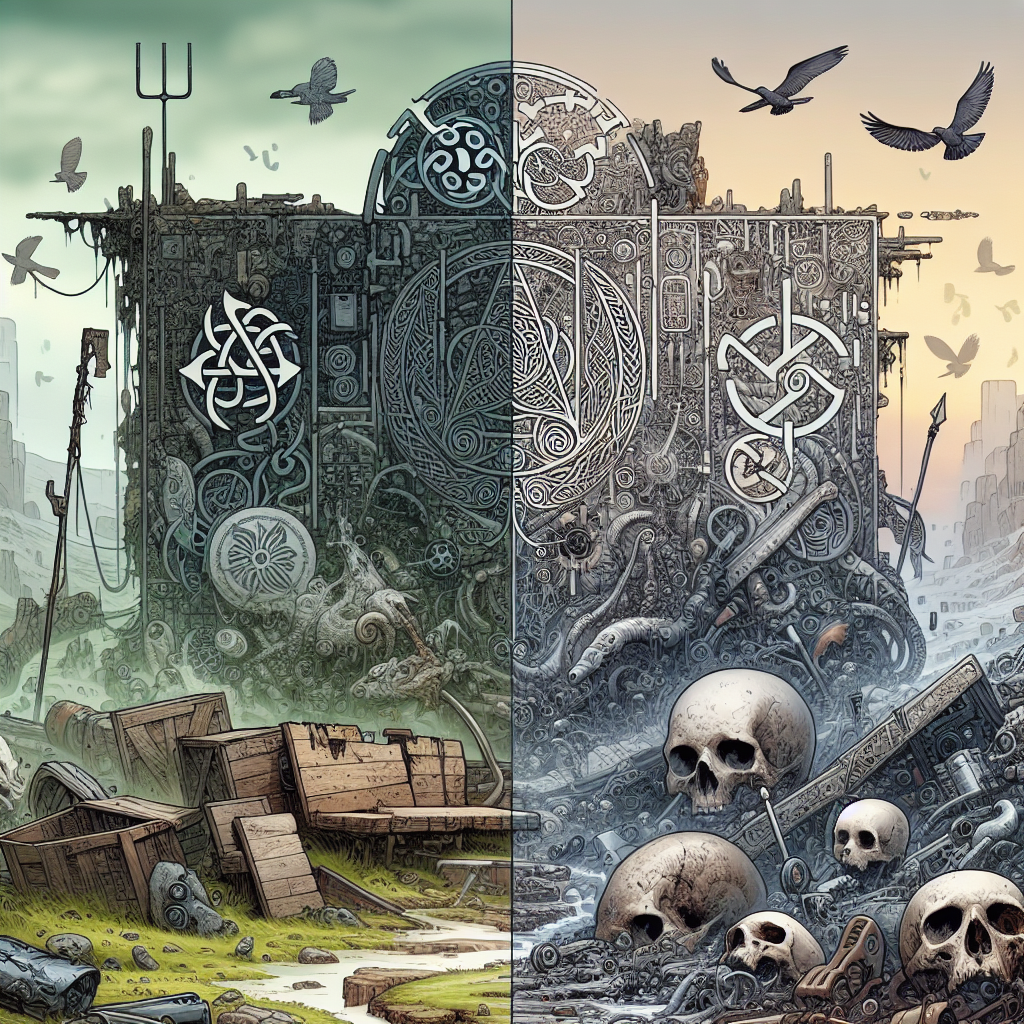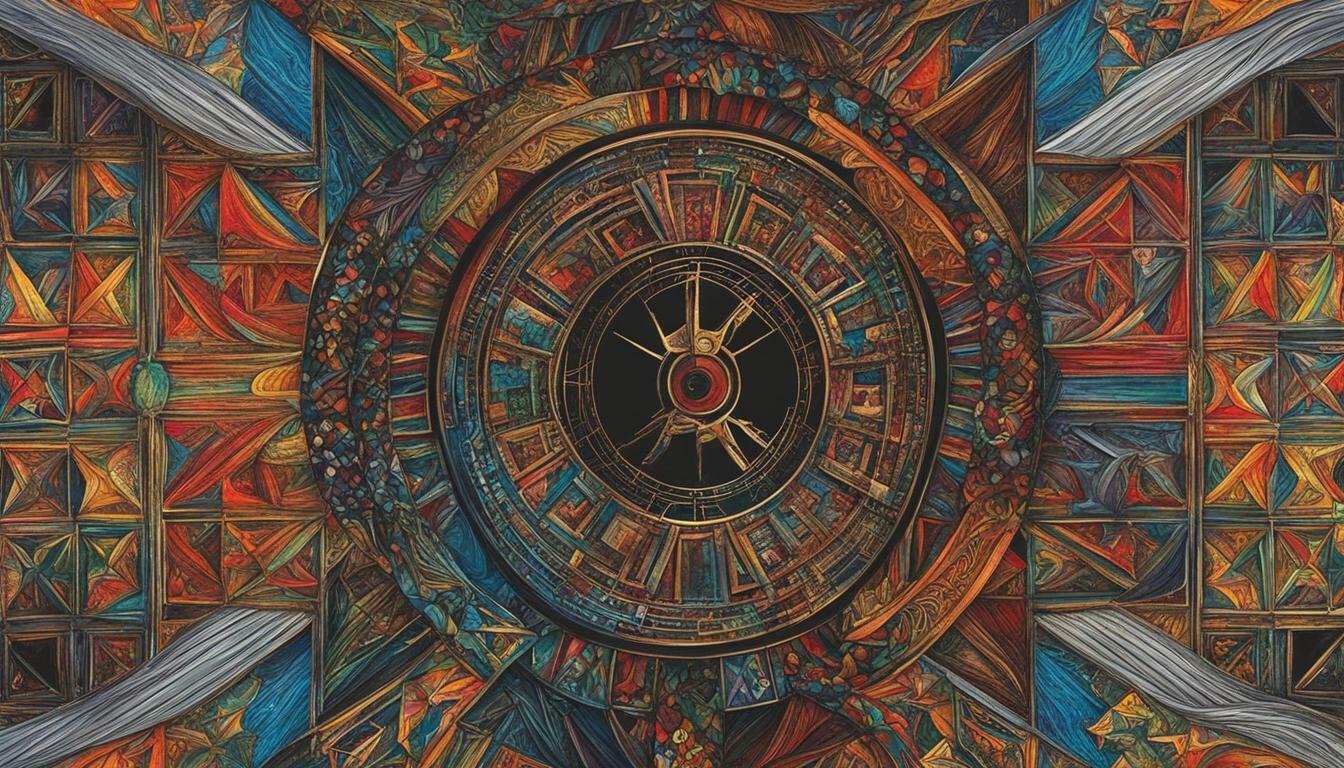Rebirth in Buddhism and reincarnation in Hinduism are two distinct spiritual concepts that differ in their views on the soul and the process of life after death. In Hinduism, it is believed that each person has a permanent soul that transfers from one body to the next after death. This means that the next life is essentially the same as the previous one. In Buddhism, however, there is no belief in a permanent soul. Instead, it is believed that only the karmic merit of a person transfers to the next life. The next life is somehow related to the previous one, but it is not essentially the same. This concept is highly complex and can be difficult to understand.
Key Takeaways:
- Rebirth in Buddhism and reincarnation in Hinduism have differing views on the soul.
- In Hinduism, a permanent soul transfers from one body to the next after death.
- Buddhism rejects the notion of a permanent soul and emphasizes the transfer of karmic merit.
- In Hinduism, the next life is essentially the same as the previous one.
- In Buddhism, the next life is related to the previous one but not essentially the same.
Beliefs about the Soul
The beliefs about the soul form the foundation for understanding the difference between rebirth in Buddhism and reincarnation in Hinduism. In Hinduism, it is believed that each person possesses a permanent soul, known as the atman, which continues to exist after physical death. This permanent soul is eternal and carries on from one life to another, undergoing the process of reincarnation. The soul’s journey is influenced by its accumulated karma, with the next life being a continuation of the previous one.
On the other hand, Buddhism rejects the idea of a permanent soul. Instead, it emphasizes the concept of anatta, which translates to “no self” or “no permanent soul.” According to Buddhist teachings, there is no inherent and unchanging essence within individuals that persists through rebirth. It is believed that what continues to the next life is the karmic merit, the result of one’s actions, thoughts, and intentions. The next life is not an exact replication of the previous one, but rather a continuation shaped by the karmic consequences of past actions.
This distinction between the beliefs about the soul in Hinduism and Buddhism reflects their differing perspectives on the nature of personal identity and the continuity of consciousness. While Hinduism sees the soul as an eternal and unchanging entity, Buddhism sees it as a constantly changing and impermanent process. Understanding these contrasting beliefs is crucial in comprehending the divergent concepts of rebirth and reincarnation in these two traditions.
| Hinduism | Buddhism |
|---|---|
| Permanent soul | No permanent soul |
| Transfer of soul from one body to another | Transfer of karmic merit from one life to another |
| Next life is essentially the same as the previous one | Next life is related to the previous one, but not essentially the same |
In conclusion, the difference between rebirth in Buddhism and reincarnation in Hinduism can be traced back to their beliefs about the soul. While Hinduism posits the existence of a permanent soul that carries on from one life to another, Buddhism rejects the idea of a fixed and unchanging self. Instead, it focuses on the transfer of karmic merit, which shapes the next life but does not guarantee its resemblance to the previous one. These contrasting beliefs highlight the philosophical and theological divergences between the two traditions and invite further exploration of their complex concepts of rebirth and reincarnation.
The Process of Life After Death
The process of life after death varies between Hinduism and Buddhism, with each tradition offering unique perspectives on the continuation of existence. In Hinduism, the belief is that the next life is a direct continuation of the previous one. It is believed that the soul, which is considered permanent, undergoes a process of rebirth in a new body after death. This cycle of birth, death, and rebirth, known as samsara, continues until the soul achieves moksha, liberation from the cycle. Hinduism also recognizes the concept of heaven and hell, where the soul’s actions determine its destination after death.
In contrast, Buddhism offers a different understanding of the process of life after death. According to Buddhist teachings, there is no belief in a permanent soul that carries on from one life to another. Instead, it is believed that the karmic energy, or merit, of an individual carries forward to the next life. This karmic energy influences the circumstances and conditions of the next life but does not determine the existence of a fixed, unchanging self. The next life is seen as connected to the previous one, but it is not a direct continuation.
It is important to note that the concepts of the process of life after death in both Hinduism and Buddhism are deeply rooted in their respective religious philosophies and can be complex to fully comprehend. The idea of rebirth and reincarnation speaks to the nature of existence and the concept of karma, which holds that actions in this life have consequences in future lives. These beliefs shape the spiritual practices and moral codes of both religions, emphasizing the importance of leading a mindful and virtuous life.
| Hinduism | Buddhism |
|---|---|
| Belief in a permanent soul | Rejects the notion of a permanent soul |
| Next life is a direct continuation of the previous one | Next life is somehow related to the previous one but not essentially the same |
| Cycle of birth, death, and rebirth (samsara) | Belief in the transfer of karmic merit to the next life |
| Recognition of heaven and hell realms | No belief in fixed realms after death |
In conclusion, while both Hinduism and Buddhism offer perspectives on the process of life after death, they differ in their beliefs about the soul and the nature of existence. Hinduism holds that the soul is permanent and experiences a direct continuation in the next life, whereas Buddhism rejects the notion of a permanent soul and emphasizes the transfer of karmic merit. Understanding these differences helps to shed light on the rich and diverse spiritual traditions that shape the lives of millions around the world.
“The process of life after death varies between Hinduism and Buddhism, with each tradition offering unique perspectives on the continuation of existence.”
Transfer of Karma
The transfer of karma is a crucial aspect of both rebirth in Buddhism and reincarnation in Hinduism, shaping the future lives of individuals based on their past actions. In both traditions, karma is understood as the law of cause and effect, with actions in one life influencing the circumstances and experiences of the next. However, there are distinct differences in how karma is perceived and its impact on the cycle of rebirth and reincarnation.
In Buddhism, karma is seen as a dynamic force that is not attached to a permanent soul. It is the accumulation of intentional actions, thoughts, and speech that determine the quality of one’s existence in future lives. The transfer of karma happens through the process of rebirth, where the karmic energy of one life conditions the circumstances of the next. The aim in Buddhism is to break free from the cycle of rebirth by attaining enlightenment and transcending the realm of samsara.
In Hinduism, on the other hand, karma is closely tied to the belief in a permanent soul, known as the Atman. The Atman carries the imprint of past actions and desires, which shape the experiences of future lives. The transfer of karma occurs through the process of reincarnation, where the soul takes on a new body in each cycle of birth and death. The ultimate goal in Hinduism is to achieve Moksha, liberation from the cycle of reincarnation, and union with the divine.
| Buddhism | Hinduism |
|---|---|
| Believes in the transfer of karmic merit | Believes in the transfer of karma tied to the permanent soul |
| Sees the next life as related to the previous one, but not essentially the same | Views the next life as a continuation of the previous one |
| Aims for enlightenment and liberation from samsara | Seeks Moksha, liberation from the cycle of reincarnation |
Understanding the intricate concepts of rebirth in Buddhism and reincarnation in Hinduism requires a deep exploration of their respective traditions. While both acknowledge the significance of the transfer of karma, they differ in their beliefs about the existence of a permanent soul and the nature of the next life. Through their distinct perspectives, Buddhism and Hinduism offer profound insights into the nature of existence and the potential for spiritual growth.
Key Distinctions and Significance
Understanding the key distinctions between rebirth in Buddhism and reincarnation in Hinduism is crucial to grasp the significance of these spiritual concepts within their respective traditions. In Hinduism, the belief in a permanent soul is central to the concept of reincarnation. According to Hindu teachings, this soul, known as the atman, carries over from one life to another, ensuring a continuation of individual identity and experiences. In contrast, Buddhism rejects the idea of a permanent soul and emphasizes the transfer of karmic merit, or the consequences of one’s actions, to the next life.
For Buddhists, the next life is not a mere continuation of the previous one, but it is somehow connected to it. The continuity lies in the effects of past actions and the accumulation of karmic merit. This understanding allows for a more fluid view of existence, where the individual is not bound to a fixed identity but rather experiences a constant process of change and transformation.
The significance of rebirth and reincarnation in Buddhism and Hinduism extends beyond individual beliefs. These concepts shape the moral framework and practices within each tradition. In Hinduism, the cycle of birth, death, and rebirth, known as samsara, is seen as an opportunity for spiritual growth and the eventual liberation from this cycle through moksha. In Buddhism, the understanding of rebirth as part of the cycle of suffering, or samsara, inspires the pursuit of enlightenment and the cessation of suffering through the practice of the Eightfold Path.
Exploring rebirth and reincarnation in Buddhism and Hinduism opens the door to a deeper understanding of the human experience. These spiritual concepts offer insight into the nature of existence, the interconnectedness of all beings, and the potential for personal transformation. While the concepts may seem complex, they provide a framework for navigating the mysteries of life and finding meaning and purpose along our individual paths.
FAQ
What is the main difference between rebirth in Buddhism and reincarnation in Hinduism?
The main difference lies in their beliefs about the soul. In Hinduism, it is believed that each person has a permanent soul that transfers from one body to the next after death. In Buddhism, however, there is no belief in a permanent soul. Instead, it is believed that only the karmic merit of a person transfers to the next life.
How does Hinduism view the soul in relation to reincarnation?
Hinduism believes in a permanent soul that carries on from one life to another. This means that the next life is essentially the same as the previous one.
What is the Buddhist perspective on the soul and rebirth?
Buddhism rejects the notion of a permanent soul. Instead, it emphasizes the transfer of karmic merit from one life to the next. While the next life is somehow related to the previous one, it is not essentially the same.
How does the process of life after death differ between Hinduism and Buddhism?
In Hinduism, the next life is viewed as a continuation of the previous one. In Buddhism, the next life is seen as somehow related to the previous one, but not necessarily the same.
What is the role of karma in the transfer between lives?
Both Buddhism and Hinduism believe in the influence of karma on future lives. However, they differ in the mechanism of transfer and the role of individual actions.
What are the key distinctions between rebirth in Buddhism and reincarnation in Hinduism?
The main distinction lies in the belief in a permanent soul in Hinduism and the absence of a permanent soul in Buddhism. Additionally, Hinduism sees the next life as a continuation, while Buddhism sees it as related but not essentially the same.
What is the overall significance of rebirth and reincarnation in Buddhism and Hinduism?
Rebirth and reincarnation play significant roles within their respective traditions. They offer explanations for the continuity of life and the concept of karma, providing a framework for spiritual growth and understanding.
 Skip to main content
Skip to main content


